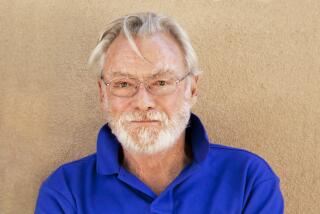BURBANK : Doctor Takes Social Cause to Woodstock
- Share via
While 500,000 people were smearing themselves with mud, practicing the hippie dances of their parents’ youth and generally having a groovy time at the 25th anniversary of Woodstock last weekend, Dr. Vicki Hufnagel was lubing up women’s bellies and performing ultrasound procedures.
No rest for the wicked--or for physicians at a rock concert.
The 45-year-old director of female reconstructive surgery at Thompson Memorial Medical Center in Burbank, Hufnagel left heat prostration and overdose victims to others at the festival in Upstate New York, however. She was there mixing social concerns and medicine, teaching women about their bodies and how to get the kind of medical treatment they want in a system she believes is dominated by male concerns.
“My whole thing is making medicine for the people,” especially women, she said.
Hufnagel has pioneered a program called “Her Body” where women can go to a hospital or medical center and watch a videotaped hysterectomy, read up on cervical cancer and get counseling on everything from the HIV virus to prenatal nutrition.
The centers are at two Los Angeles-area hospitals and at a hospital in Palm Springs. A third is in the planning stages at a New York medical center. By offering women “one-stop shopping” for such varied medical services, Hufnagel said, she is able to charge less than they might pay elsewhere.
Hufnagel said she went to Woodstock II to educate young women about medical concerns unique to them and about issues she feels still aren’t being properly addressed. A quarter-century after their mothers removed their tops and demanded equal attention for the female body, last weekend’s concert-goers came to see her in a tent that Hufnagel put up near such political activists as Greenpeace and Mother Jones magazine. She and her nurses and assistants went to work even before the festival began. Hufnagel missed the original Woodstock because she was studying at the country’s other counterculture outpost, Berkeley. This reunion lacked the same sense of hope and promise, she said, both medically and socially.
The vibes were negative.
People complained “ ‘We can’t do anything about AIDS, we can’t do anything about Rwanda.’ A lot of people didn’t have insurance. What we were seeing was this overwhelming sense of nihilism,” she said.
More to Read
Sign up for Essential California
The most important California stories and recommendations in your inbox every morning.
You may occasionally receive promotional content from the Los Angeles Times.











